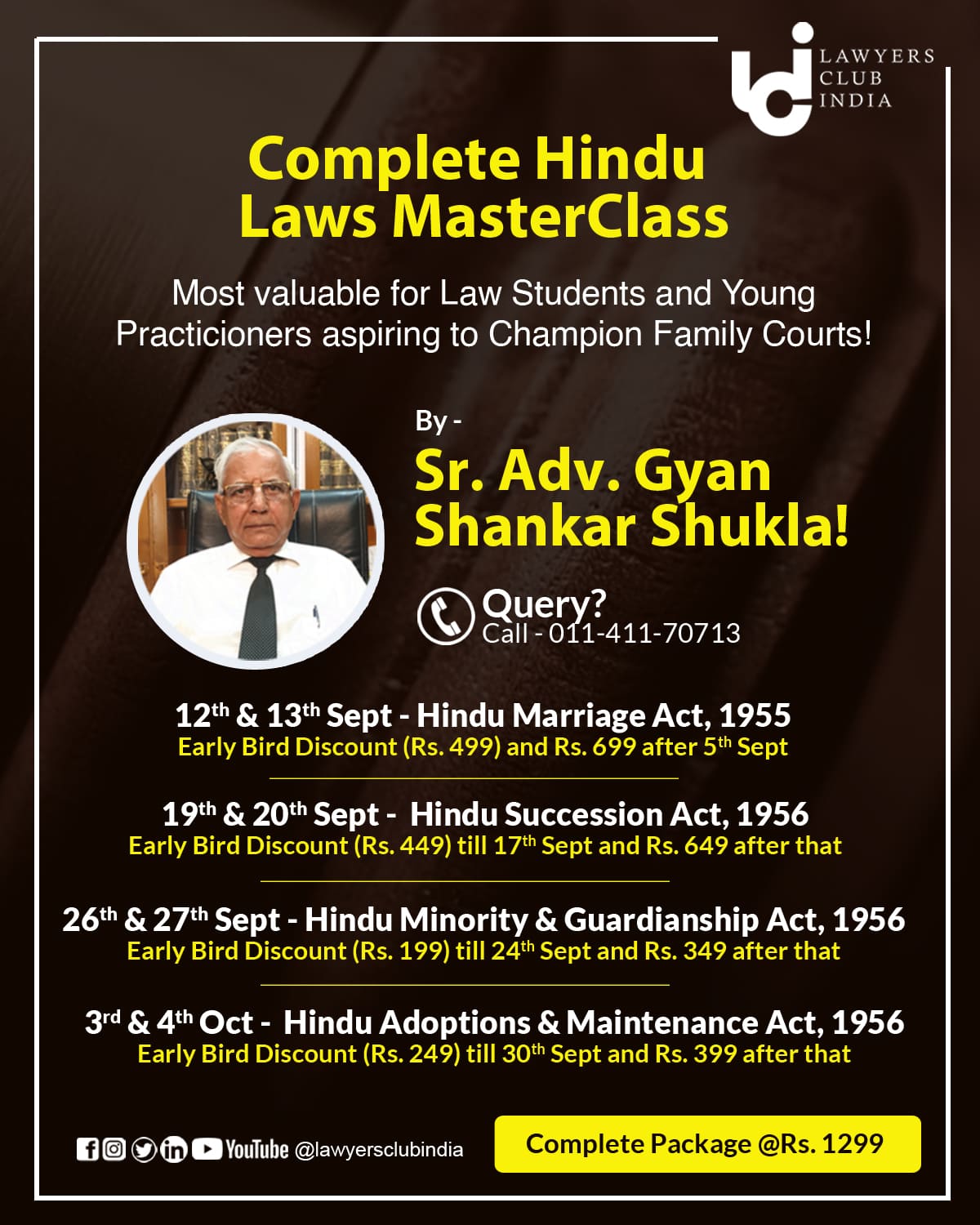One of the most common phrases in the legal world is “Law is a matter of interpretation” but it’s the lawyers job to figure out, under which interpretation will the justice be served best to his or her client, and the recent Supreme Court judgement proves that even if you are morally and ethically correct in seeking justice for your cause, to be legally correct in the court of law, what matters, are the facts on ground, and the grounds on which the facts of your case depend.
Nothing proves the above analogy better than the recent Supreme Court judgement, where by the court has made it very clear that one should come through a proper channel, if they want a remedy from the court.
Yes the judgement in question here is about an application filed by an unmarried girl (ABHILASHA VS. PRAKASH & OTHERS) who claimed maintenance from her father.
The petitioner had filed a petition in SC where she challenged the decision of a judicial Magistrate, made in the year 2011 and thereafter of Punjab & Haryana High Court.
The District Magistrate had however granted maintenance to the petitioner from her father under Sec.125 (1) (c) of Cr.PC till the time she attains majority. Once she attains majority, the court held that if she is able to maintain herself and is not suffering from any physical or mental disability (which also happens to be one of the major grounds to claim maintenance under this section) she will not be entitled to the same.
This ruling was challenged by the petitioner in Punjab & Haryana High Court, where the court dismissed her appeal in 2018 holding that it did not find any illegality or infirmity in the previous decision.
Until now it was all straight forward, but then...
The same was challenged in Supreme Court, where the petitioner argued that she was entitled to maintenance from her father under Sec.20 of Hindu Adoption and Maintenance Act, which says that the obligation of a father to maintain her daughter until she gets married. She contended that since she was still unemployed, she has a right to claim maintenance from her father.
But Supreme Court while giving its judgement compared the two sections: Sec.125 Cr.PC and Sec.20 of HAMA (Hindu Adoption and Maintenance Act), and stated that the former section provides claim to maintenance to an unmarried daughter only if she is suffering from any physical or mental discomfort and is not able to find a livelihood for herself. The court also cited Sec.488 of the Cr.PC which sought to prevent the negligence of a woman or children with an intention to serve a social purpose.
Before proceeding further, we first need to understand what is the significant different between these two above stated acts that prima-facia aim to achieve similar objectives
Sec.125 of Cr.PC versus Sec.20 of Hindu Adoption and Maintenance Act:
1) Sec.125 of Cr.PC: According to this act any person having sufficient means cannot neglect or refuse maintenance to his wife, minor children (legitimate or illegitimate) or his unmarried daughter (after she has attained maturity) only if they are not able to maintain themselves by way of physical or mental abnormality or injury.
Whereas
2) Sec.20 of the Hindu Adoption and Maintenance Act: This act clearly says that the obligation of a person to maintain his or her aged or infirm parent or a daughter who is unmarried extends in so far as the parent or the unmarried daughter, as the case may be, is unable to maintain himself or herself out of his or her own earnings or other property.
Keeping these provisions laid down by the legislature, Supreme Court rightly pointed out that the scope of maintenance as contemplated under HAMA is a larger concept as compared to the concept of maintenance under Section 125 of the Cr.PC.
Hence the Supreme Court’s decision not to grant maintenance to the petitioner was based on the fact that the petitioner never thought of taking this case in the court of the Judicial Magistrate under Sec.20 of the Hindu Adoption and Maintenance Act.
The apex court made it clear by saying that Sec.125 of Cr.PC is intended to give immediate relief to the petitioner which the court of ASJ gave, but to get a relief under Sec.20 of Hindu Adoption and Maintenance Act, the petitioner needs to file the suit under the same section.
But since it seem that still the moral and ethical grounds favour the petitioner, Supreme Court has allowed that the petitioner can file a fresh plea under Hindu Adoption and Maintenance Act 1956
The above actions by the Supreme Court are clearly indicative of the fact that the rule of law in the country is according to the text written in the rule book hence leaving no scope of unbiased decision making, and also that for every lawyer fighting for the rights of his/her client, it’s not just the final objective that is important, but also important to have absolute knowledge about the right tools to achieve that objective.

Enroll the Complete MasterClass Course on Hindu Laws: Click Here
Join LAWyersClubIndia's network for daily News Updates, Judgment Summaries, Articles, Forum Threads, Online Law Courses, and MUCH MORE!!"
Tags :family law











